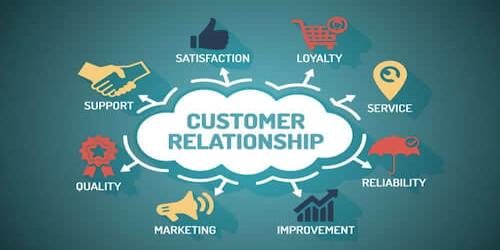Customer Relationship Management (CRM) is a strategy for managing an organization’s relationships and interactions with customers and probable customers. The goal is simple: Improve business relationships. It helps companies stay connected to customers, streamline processes, and improve profitability.
CRM project does not produce the result that was promised a survey regarding CRM shown that CRM implementation had actually damaged long-standing Consumer Relations.
(1) Costs: One of the biggest challenges facing companies trying to implement CRM is the cost associated with purchasing, installing and training employees to use new software, according to CRMlnfoline.com. CRM often doesn’t deliver the return of investment that companies hope for, though this is typically the cause of a poorly implemented system or poorly trained staff. While a properly implemented system should; eventually, show a good return on investment, CRMInfoline.com claims these results could take years to see in full effect as the new system takes root and customer awareness and participation grow.
(2) Transition: In order for a business to use a CRM solution properly, nearly the entire business will have to change. Most companies operate on an “us first, customers second” mentality, whereas CRM-centric businesses focus on placing customers and their satisfaction before the company. Furthermore, CRM systems are typically very complex and span multiple departments, meaning most employees will have to go through some sort of training that will inhibit them, at least somewhat, from performing their normal work duties.
(3) Smaller Businesses: Some of the challenge and difficulty associated with implementing a CRM system are dependent to some degree, on the size and well-being of a business. While a large, well-off business will probably have the capital, time and resources to implement a CRM solution, a smaller business may not have those resources as readily available. This makes the proper and fills implementation of CRM much more difficult for smaller businesses.
(4) Lack of understanding: CRM is highly developed software, so the users and the operators may have lacking in understanding of CRM.
(5) Lack of participation: Because of lacing in understanding and unfamiliar, it is may have less participation in use of CRM.















